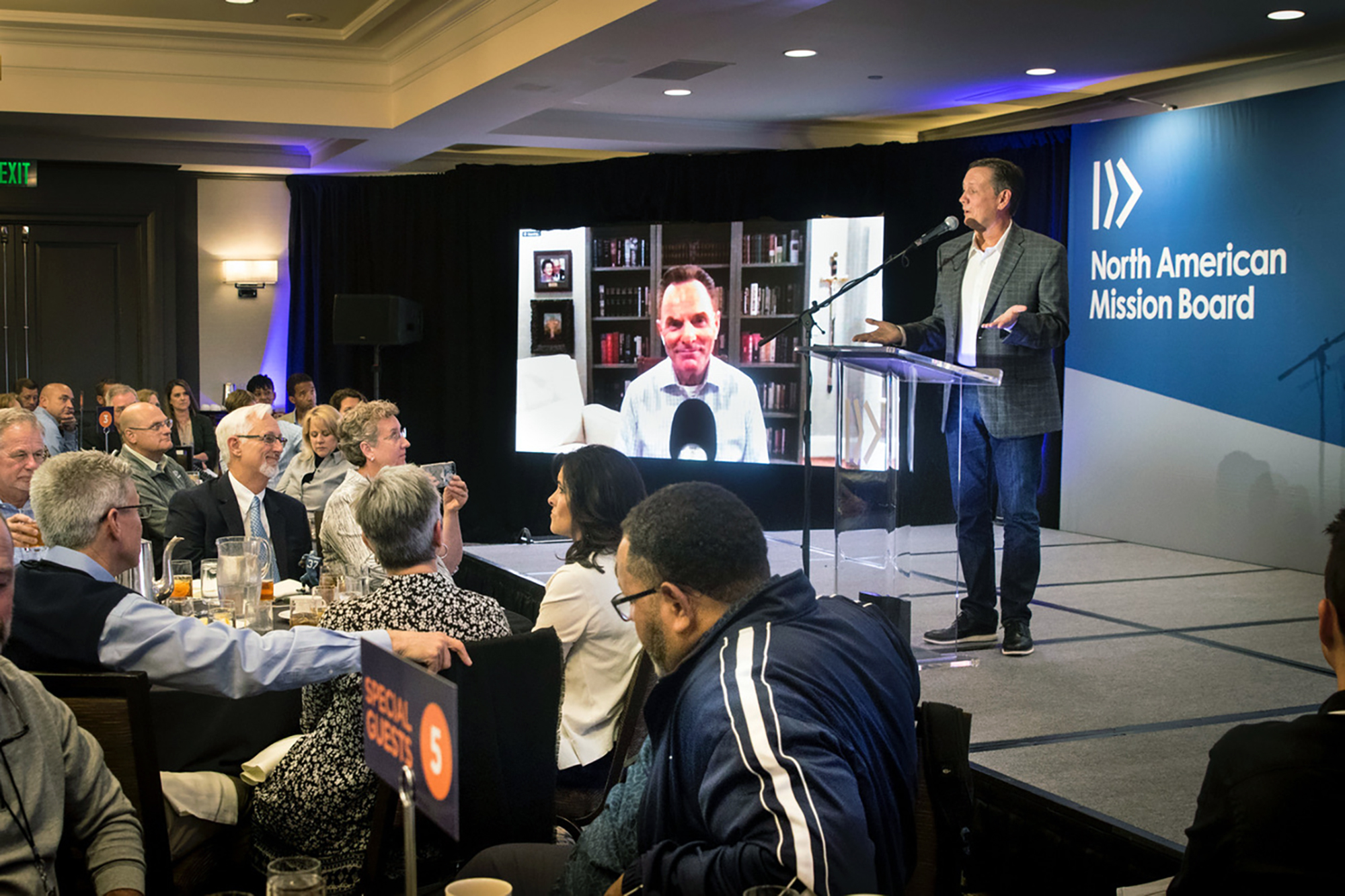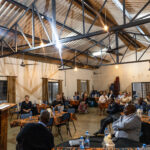
LONDON—Few noticed when a group of about 75 tourists learning about London’s Christian history grew by two.
As the tour group, consisting mostly of pastors and church leaders from the Southern Baptists of Texas Convention, ambled down the city’s bustling streets, a pair of local teenagers began walking with the tour and asked one of its participants what all the fuss was about.
“We’re a group of Christians from churches in Texas learning about Christian heritage in London and the U.K.,” said Matthew Hamline, who was with his wife, Stacia. “Do you know about your country’s Christian heritage?”
No, the teen said, he didn’t.
“Well,” Matthew continued, “what do you know about Christianity? What do you know about Jesus?”
“I know Christians believe in a guy named Jesus, that He died, and it had something to do with a cross,” the teen said.
“He did die on a cross,” Matthew responded, “but do you know what happened after that?”
No, the teen said, he didn’t.
Most on the tour didn’t even know the interaction happened. But for Matthew and Stacia—members of First Baptist Church in Academy and part of the SBTC contingent—it lingered and brought with it another puzzling question.
“How have things gotten so bad that this is the standard here, not only in London but all across England?” Matthew said later. “I was just heartbroken that, here we are, meeting people in the shadows of these massive cathedrals that were at one time dedicated to the gospel and Jesus Christ, who know nothing about Jesus.”
“The hardest thing for me to see was just how prevalent the symbols of Christianity are here, but how dead spiritually many people seem to be,” Stacia added. “We looked at some beautiful churches, but we found out from the missionaries here that some of the churches are being used as night clubs, some have become drug distribution centers, some as shopping centers—completely throwing away these buildings that were meant to be glorifying to God, to be places of worship.”
In May, the SBTC led a vision trip to kick off its Reach Europe initiative. The trip introduced pastors and church leaders to missions opportunities across the continent with the hope of facilitating long-term partnerships. The SBTC, in partnership with the Southern Baptist Convention’s International Mission Board, is targeting seven European cities including Leeds, one of the largest cities in Northern England.
Leeds is a microcosm of what is found not only across the United Kingdom, but all of Europe—which is to say, it’s a city with a rich Christian history and monumental church landmarks, yet almost completely devoid of actual Christians. Beau Bevers, who pastors First Baptist Church in Madisonville and was on the SBTC’s Leeds team, noted the evangelical Christian population in Northern England barely tips the scale at 0.5%. It’s one of the reasons the IMB considers all of Europe an unreached continent.
“It’s extremely dark spiritually,” Bevers said. “Not only would they call themselves non-religious, but they are actually very antagonistic toward Christianity.” As such, Bevers noted, it’s a very tough place to do gospel ministry.
Even so, there are pockets of pastors leading churches in Leeds who are faithfully working to reclaim territory for Christ. While in Leeds, pastors and church leaders met with a number of local pastors and missionaries who shared how SBTC churches can partner with them. Those opportunities include doing door-to-door evangelism and hosting events such as holiday clubs, which is equivalent to vacation Bible school in the U.S.
The partnership seems to be happening at just the right time. Baptist Press recently reported that the UK-based Bible Society is reporting an increased receptivity to Jesus and spiritual matters. Recent studies revealed an increase in church attendance among 18- to 24-year-olds (up from 4% in 2018 to 16% in 2024) and an increase in the number of churchgoers who read the Bible at least weekly (54% to 67%).
Bevers said pastors in Leeds are hoping to develop years-long partnerships with SBTC churches to maximize gospel impact and develop much-needed relationships to provide support and encouragement. He said the average missionary in this part of England doesn’t last longer than about three years.
The Hamlines—Matthew, a 24-year-old firefighter, and Stacia, a 22-year-old middle school teacher—are considering their own long-term commitment. Even before they had heard of Reach Europe, they had been praying for the spiritual situation in the U.K. and considering a career as missionaries with the IMB. The vision trip only intensified their desire to team up with the small-but-faithful band of Christians there to make Jesus’ name known across the country.
“Every one of the churches we saw was filled with people who are passionate about the gospel and passionate about knowing God and studying the Scriptures,” Matthew said. “It was really heartwarming and really refreshing to see entire congregations [in such a lost place] passionate about Jesus and the gospel. It’s exciting.”






















